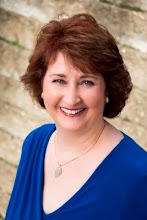 |
| A Bright Darkness Book 3 of the award-winning Twisted Climb series |
Next month, the final book in The Twisted Climb series will be published. I have to tell you that writing and researching this book has been an epic journey. When I was in school, Native Indian history was largely ignored. What a shame. It's my hope that A Bright Darkness will provide the reader with a glimpse into their phenomenal energies.
Patty pressed her body against the dream world’s cold rock wall,
her hands searching for outcroppings and niches. She was close to the top. The
ghostly rays from the moon illuminated more footholds on the rock wall above
her and she climbed higher. Though the cliff wall was about 40 metres tall, the
many ledges and footholds made it an easy climb. Within moments, Patty’s fingers
touched the smooth flat surface at the top and she peered cautiously over the
edge. It has to be a surprise attack.
There they were – her teenaged daughter, Jayden; the
handsome dark-haired fellow; the carrot-haired guy, and a young child. They
were at the opposite edge but close – just a stone’s throw away. The flat rock
surface at the top of the cliff spanned a mere five metres across to the other
side. Beyond that, a yawning blackness dropped into a steam-filled volcano vent.
Ah, and there... there was the boy she followed so
relentlessly. “Dick” they called him. The boy with the thick red scar etched
across the top of his sickly, bald head. She was going to get rid of Dick once
and for all. She lowered her head slowly, remaining out of sight.
It was almost time.
She waited, panting with excitement, hands and feet braced,
heart racing.
Now. Patty slowly
raised her head and then gasped in astonishment. The carrot-haired boy and the child
were gone. Had they jumped into the
volcano? Dick was standing at the edge, his long, scarecrow-like arms
dangling by his sides. At his feet lay the cable cutters that he carried as his
personal weapon. Maybe he pushed the kids
into the abyss?
Her gaze shot over to Jayden and the handsome guy. Jayden
was whispering and emphatically gesturing toward Dick. Before Patty could pull
herself over the top, her daughter and the young man clasped hands. She watched
as they sprinted forward and picked up the scarred boy in an arm-tackle
manoeuvre, much like the ‘red-rover’ game she used to play as a child. Dick struggled
but he was helpless to untangle himself from their grasp. The duo leapt off the
cliff, taking Dick with them.
Patty scrambled onto the rock surface. All was quiet. White
wisps of steam floated up from the hot volcano vent. She was alone.
“Fools!”
Walking to where the kids had jumped, she picked up the long-handled
cable cutters. Holding the tool up to the light of the full moon, she shook it
angrily. A primal howl erupted from deep within her, the high pitch gaining
intensity until she could hold it no more. Before she could take another
breath, a pack of wolves began a matching chorus of howls. Their voices echoed eerily
across the valley.
Patty smiled – a cold, soul-less, unholy display of emotion.
She manifested neither joy nor love, not even sadness for the fate that must
have befallen her daughter and the others. Instead, her green eyes were dark
and malignant, their gaze excreting a menacing hatred. She slapped the cutters
across the palm of one hand and stepped toward the volcano’s edge. Steam and an
orange glow came from below. She peered into the depths and the pupils of her eyes
reflected the hellish glow swirling beneath.
“Fools!” she repeated. “Dick was mine to destroy.”
* * *
 |
| Ancient depiction of Mishibeshu, the mythological Sea Monster / Underwater Panther of the Anishinaabe tribes. Photo from the National Museum of the American Indian. |
 |
| The mythological Thunderbird, crest of the Anishinaabe tribes |
Until next time, stay safe everyone :)





















































